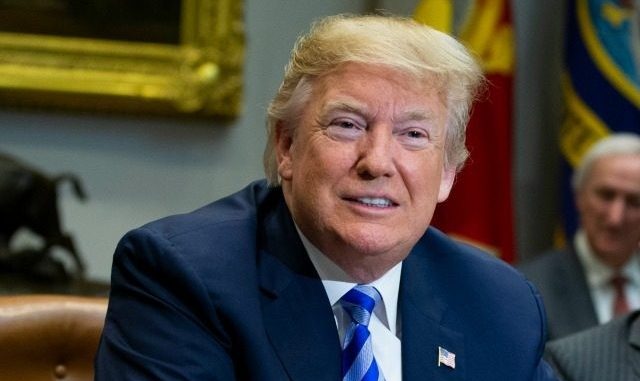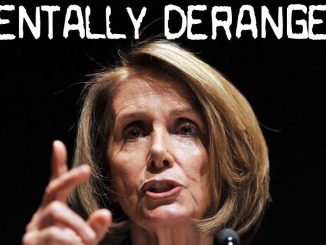
Establishment Republicans are trying to beat populist GOP primary rivals by mimicking President Donald Trump’s pro-American immigration arguments, says a top editor at the Atlantic magazine.
In the May primaries, candidates “aggressively … sought to coopt these arguments,” writes Ronald Brownstein, the Atlantic‘s editorial director for strategic partnerships. He continued:
If there was a major GOP candidate in these primaries who did not loudly declare their support for building Trump’s border wall, I didn’t see it. Likewise, every major GOP candidate pledged to crack down on so-called “sanctuary cities,” which limit their cooperation with federal immigration-enforcement officials, and several pledged to constrict legal immigration.
The trend towards populist migration policies is nationwide, Brownstein laments in his article, which is titled “The Eroding GOP Resistance to Trump’s Immigration Agenda”:
… relatively more mainstream Republican candidates are holding off the anti-immigration vanguard by accepting much of their agenda. Only a handful of prominent Republicans, such as Arizona Senators Jeff Flake and John McCain, still publicly dissent. “There is not an obvious set of leaders to put a break on this,” said Simon Rosenberg, the founder of the Democratic advocacy group NDN, who has long studied the impact of demographic change on both parties.
Especially striking is that Republicans are stampeding toward this harder line not just in Rustbelt states like Ohio, West Virginia, and Indiana—which have few immigrants and little diversity. They’re also doing so in the Southwest states, where there are growing Latino and Asian American populations. Texas Governor Greg Abbot has signed legislation to punish sanctuary cities. At last weekend’s California Republican state convention, delegates flocked to a session encouraging local governments to join the Trump administration’s lawsuit against the state’s sanctuary law. And the Arizona Senate primary has been a race to the right on immigration.
However, Brownstein mistakes the establishment’s virtue-signaling about illegal immigration for support of Trump’s populist policies.
Widget not in any sidebars
Trump’s four-part reforms go far beyond simply enforcing the popular laws against CEOs hiring illegal migrants.
His popular reforms include reducing the level of immigration by ending the visa lottery and chain-migration program, fixing the many loopholes that are used by migrants, cheap-labor employers, and their allied politicians to reduce Americans’ wages and salaries. He wants to build the wall to block crime and illegal migration, and also to celebrate Americans’ borders and distinctiveness in a world where globalists enforce “diversity” to erase national democracies, culture, economies and communities’ political clout.
Those populist policies have been embraced by some GOP primary winners, including populists in West Virginia and North Carolina, but are just mimicked by establishment GOP candidates.
Trump’s focus on imported labor, wages, and salaries is still taboo for establishment politicians. Instead, the establishment lines up with business groups to preserve the federal government’s economic strategy of growth-via-mass-immigration.
That economic policy has a had a huge impact on Americans since the 1990s, because it grows Wall Street and real-estate prices while also stalling or shrinking income for the vast majority of Americans and legal immigrants. In practice, mass immigration is an economic policy which shifts wealth from the young and poor to the old and wealthy.
The strength of that economic agenda is made clear by the establishment’s refusal to fight for Trump’s four-part reform agenda, or even to fund the border wall. In February 2018, for example, 14 business-first GOP Senators voted against Trump’s election-winning reforms. On May 11, House Speaker Paul Ryan claimed business is suffering from a labor shortage, called for a DACA amnesty without any reductions in chain-migration or ending the visa-lottery — and without any increase in wages.
Brownstein depicts those establishment GOP politicians as “mainstream Republicans” in line with skewed “Nation of Immigrants” push-polls:
polls consistently show that significantly more Americans believe immigration strengthens, rather than weakens, the country; the margin was greater than 2 to 1, for instance, in an NBC/Wall Street Journal survey released last September.
But alternative “choice” polls reveal most voters’ often-ignored preference that CEOs should hire Americans at decent wages before hiring migrants. Those Americans include many blue-collar Blacks, Latinos, and people who hide their opinions from pollsters.
Similarly, the 2018 polls show that GOP voters are far more concerned about migration — more properly, the economics of migration — than they are concerned about illegal migration and MS-13, taxes, or the return of Rep. Nancy Pelosi.
Unsurprisingly, the establishment media is doing its best to downplay the establishment’s closed-door fight to preserve the mass-migration economic strategy.
Brownstein declares, “the party has now clearly surrendered the wheel to Trump,” but the GOP leaders’ actions show they are still stepping on the brake as hard as they dare.
Widget not in any sidebars
Four million Americans turn 18 each year and begin looking for good jobs in the free market.
But the federal government inflates the supply of new labor by annually accepting roughly 1.1 million new legal immigrants, by providing work-permits to roughly 3 million resident foreigners, and by doing little to block the employment of roughly 8 million illegal immigrants.
The Washington-imposed economic policy of economic growth via mass-immigration shifts wealth from young people towards older people, it floods the market with foreign labor, spikes profits and Wall Street values by cutting salaries for manual and skilled labor offered by blue-collar and white-collar employees. It also drives up real estate prices, widens wealth-gaps, reduces high-tech investment, increases state and local tax burdens, hurts kids’ schools and college education, pushes Americans away from high-tech careers, and sidelines at least 5 million marginalized Americans and their families, including many who are now struggling with opioid addictions.







Be the first to comment